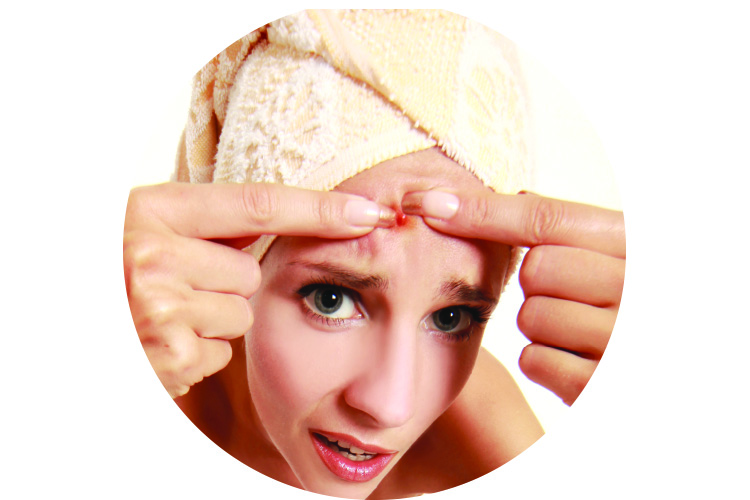One of the major if not the number one cause of unhappiness and depression amongst teenagers today is acne. In the past it is often ‘pooh poohed’ as skin deep problem only. Words like “you will grow out of it”, “it is only a teenage problem“, are no longer acceptable to our young people today.
Some people confuse mild break-outs for pimples whilst more severe breakouts for acne, when actually they are the same medically. Mild breakouts is mild acne, moderate and severe breakouts is moderate acne and severe acne respectively.
The cause is due to a host of many factors interacting together, inflammation, blockage of the oil ducts, bacteria and the sebaceous glands becoming sensitive to normal levels of the hormone androgen which is present in both men and women. High humidity and temperature is associated with more frequent relapse. Stress causes the body natural steroids to increase which is associated with increase oil production leading to sudden breakouts episodes.
Table of Contents
Acne Period
Acne tends to start around adolescence and resolves in their mid twenties, girls peaking earlier, 14-16, boys 16-19. One of the myths is that it is a teenage problem and one should not get acne after age 30. The statistics are as follows:-
- Women more than men
- For every 100 female pensioners, roughly 15 will have acne!
- Acne often starts as small non-inflamed comedones called “whiteheads” with a closed pore or blackheads which is an open pore with a oxidised plug, hence its dark colour. It then progresses to the papule (spot) or pustule becoming nodules or cyst as it progresses.
Acne complications
- Physical scars due to the deep inflammation leading to a ‘Moon crate face”
- Psychosocial scars… lack of confidence, embarrassment, depression, difficulties in interpersonal relationships, employment problems.
- Scars from treatment… patients often seek alternative treatments which can make the scars worst.
Some Acne Myths
It is only a teenage problem.
Even adults can get acne!
Dirty face, poor hygiene…
No matter how much one cleanses the face, acne will not clear up untreated.
Due to raging hormones…
No hormones levels are normal but it is the oil glands in the skin that are sensitive to the normal levels of androgens.
Picking or squeezing is ok…
It can make it worst and exacerbate the inflammation leading to scarring.
It is contagious…
Certainly not.
Too much or too little sex makes it worse…
No truth in it.
Severe acne cannot be completely treated…
It can, see your local Dermatologist.
Diet has no effect on it…
On the contrary, recent research shows diet does play a part.
Diet and acne
- Milk and milk products, i.e., cheese, yogurt, butter, etc tends to aggravate acne mentions a large study done in USA comparing 50,000 nurses. Those who had more milk in their diet had worst acne. It is thought to be due to hormones in the milk. However, I would recommend not to stop drinking milk or eating milk products as it provides calcium for our bones. Just reduce the consumption by half if one has a breakout.
- High glycaemic index food, i.e., sweets, biscuits, chocolates which rapidly increase blood sugar may increase production of the hormone insulin which in turn affects other hormones in the body resulting in more oily skin. Eat more low glycaemic index food such as fruits, wholemeal bread, bran, brown rice, etc.
- Green vegetables specifically salads in a study conducted in Norway amongst teenagers was shown to have an impact in reducing acne lesions.
Treatments
Mild acne
It can be managed with creams and cleansers prescribed by the general practitioner. Important to be patient as it will require 6-12 weeks at least to see results.
Moderate acne
It may require oral medications like antibiotics together with the creams and cleansers. May need to take medications for up to 6 months.
Severe acne with early scarring
The patient should consult a Dermatologist for further specialist treatment.
Acne should not be regarded as a minor problem and should be treated early. Early appropriate management can prevent scarring and psycho-social complications.
















